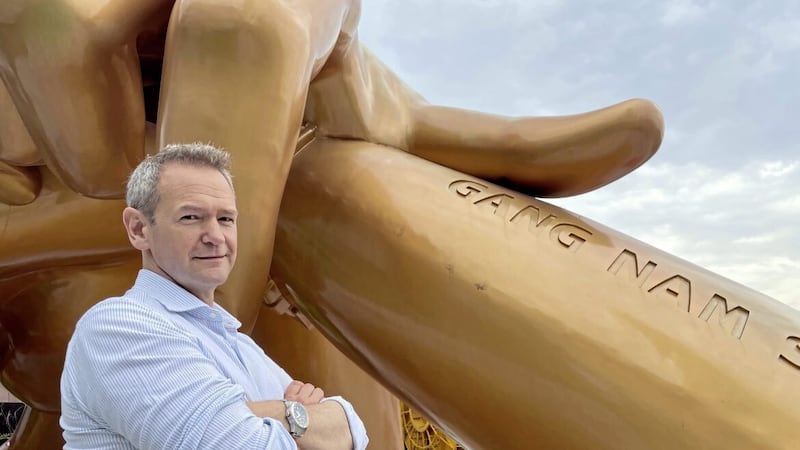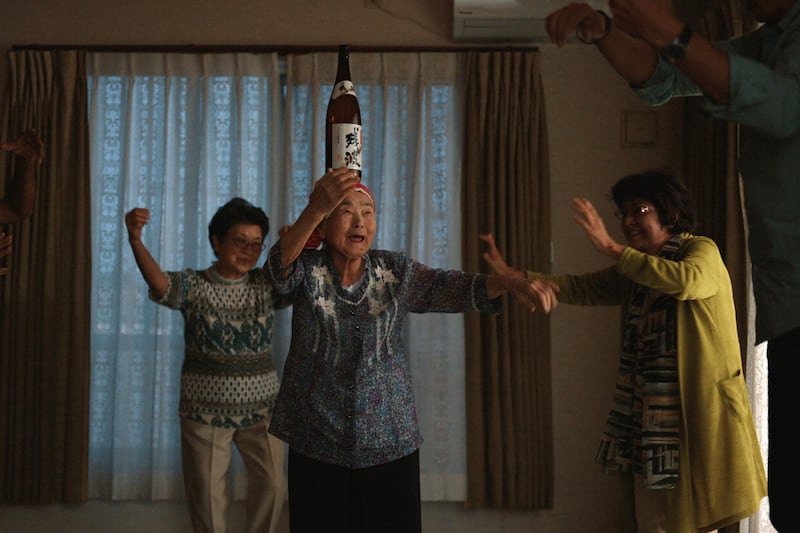Alexander Armstrong in South Korean, Channel 5, Tuesday and My5
Pointless presenter Alexander Armstrong’s three-part exploration of South Korea is the antithesis of his late afternoon quiz show.
His travels in one of the world’s most successful countries is essential viewing for those unconvinced of the power of liberal capitalism.
South Korea emerged devastated from the last war between two superpowers, but less than 70 years later has the tenth largest economy in the world. That’s bigger than Russia, Brazil, Australia and Spain.
And obviously, it’s substantially more successful than the other side of that civil war, North Korea.
More than 20 countries in the world have tried communism (it depends how you count the dominions of the Soviet Union) and all have failed spectacularly. China has been a partial success because it added capitalism to its authoritarianism.
But there’s only one place where events have meant a remarkable experiment has been run.
Korean was divided in two by war, after the South Koreans, backed by the UN and the US, and the North Koreans, backed by the Chinese, came to a stalemate in 1953.
North Korea opted for dictatorial communism. South Korea took a few years to get rid of the autocratic Syngman Rhee but from the 1960s began to embrace the freedoms which led to economic growth
Within two decades Seoul had hosted an Olympics and it now boasts some of the world’s most successful companies in Samsung, Kia, SK Hynix, Hyundai and LG.
A common goal, hard work and open competition means South Koreans’ lives are completely separated from the hunger and fear of their northern neighbours.
North Korea relies on the donation of international food aid after experiencing a famine in the 1990s and while data is limited, its economy is regarded as one of the poorest outside Africa.
South Koreans are estimated to be about 30-times richer than their neighbours. And then there’s freedom of expression, representative democracy, freedom to travel and the choice of your own clothes. All basic human rights denied to North Koreans.
Armstrong discovered the wonderful frivolity this wealth has brought.
The 52-year-old tried his hand as a K-Pop star, wearing a see-through top, gold trousers and some serious make-up.
Most countries have manufactured pop-groups, but K-Pop takes it to a new level, with some of the wannabe stars in a training programme for years.
He meets one of the up and coming groups, Stay-C. One of the members started as a “K-pop trainee” at 13 before she “debuted” at 20.
It’s kitsch and plastic but is worth £5 billion a year.
The capital, Seoul is one of the most vibrant cities in the world, with a population of 26 million and a worldwide hit about its most fashionable district, Gangnam.
Besides their innovative companies and nuclear threatening neighbour, there are other interesting things about this country, which also suffered under Japanese rule.
South Korea men are among the biggest users of make-up and plastic surgery is even more commonplace than in California.
Armstrong does many of things common to television travel - sampling the food, the drink, the outdoors and meeting the locals, including a defector from the north.
Although it’s not the presenter's first travel show (he trekked across the Arctic for ITV in 2015), he certainly has a future in this genre.
He’s funny (comedy is his first love), interested in the world and a comforting companion.
So, we’ll leave the last word on this amazing country to him: “It’s a global powerhouse and an economic miracle, yet it’s smaller than England and at only 70 years old, younger than David Hasselhoff.”
The final episode is on Channel 5 on Tuesday.









